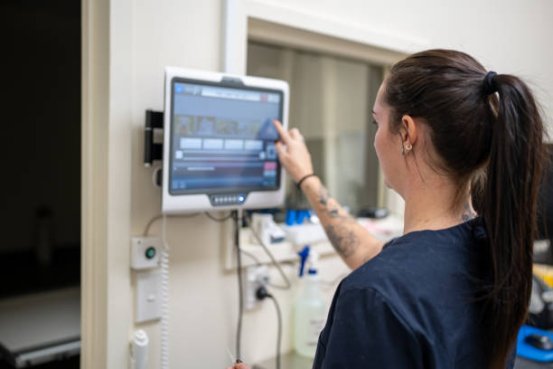Optimizing medical practices through specialized software enhances efficiency and reduces operational costs. Modern clinics increasingly rely on these tools to streamline tasks from scheduling to billing, ultimately improving patient care and practice management.

What Is Clinical Software?
Clinical software, or clinical practice management software, is a comprehensive suite of digital tools designed to optimize the daily operations of hospitals, clinics, and healthcare practices. It addresses challenges unique to healthcare providers while ensuring high-quality patient care. Many features can be customized to meet the specific needs of each clinic or practice.
Electronic Health Records (EHR)
EHR systems form the core of clinical software, allowing clinics to store and manage digital patient records, including medical histories, diagnoses, treatments, lab results, and more. By replacing paper charts, EHR systems provide secure, easy access to essential information and streamline updates and sharing.
Appointment Scheduling
Clinical software simplifies appointment management for both staff and patients. Features such as online booking, automated reminders, and real-time schedule updates reduce conflicts, save time, and improve overall operational efficiency.
Inventory Management
Effective inventory tools ensure that clinics maintain adequate supplies of medications, vaccines, and medical equipment. These systems track stock levels, alert staff when thresholds are met, and monitor expiration dates, preventing shortages or overstocking.
Billing and Invoicing
Billing modules simplify financial processes by generating invoices, tracking payments, and facilitating online transactions. This reduces errors, saves administrative time, and improves revenue management.
Communication and Messaging
Seamless communication is crucial for patient care. Many clinical software solutions feature messaging tools that enable staff and patients to communicate effectively, enhancing both service quality and satisfaction.
Reporting and Analytics
Reporting and analytics tools support data-driven decision-making. Clinical software provides detailed operational insights, helping healthcare managers evaluate performance and plan strategically.
Telemedicine
Integrated telemedicine features allow providers to conduct remote consultations, ideal for follow-ups or minor health issues, reducing the need for in-person visits.
Compliance and Record Keeping
Maintaining regulatory and ethical compliance is critical in healthcare. Clinical software helps clinics manage accurate records, track medications, and monitor controlled substances in accordance with legal standards.
By consolidating these functions, clinical management software improves organization, reduces administrative burdens, and allows healthcare professionals to focus on patient care, ultimately enhancing outcomes and satisfaction.
